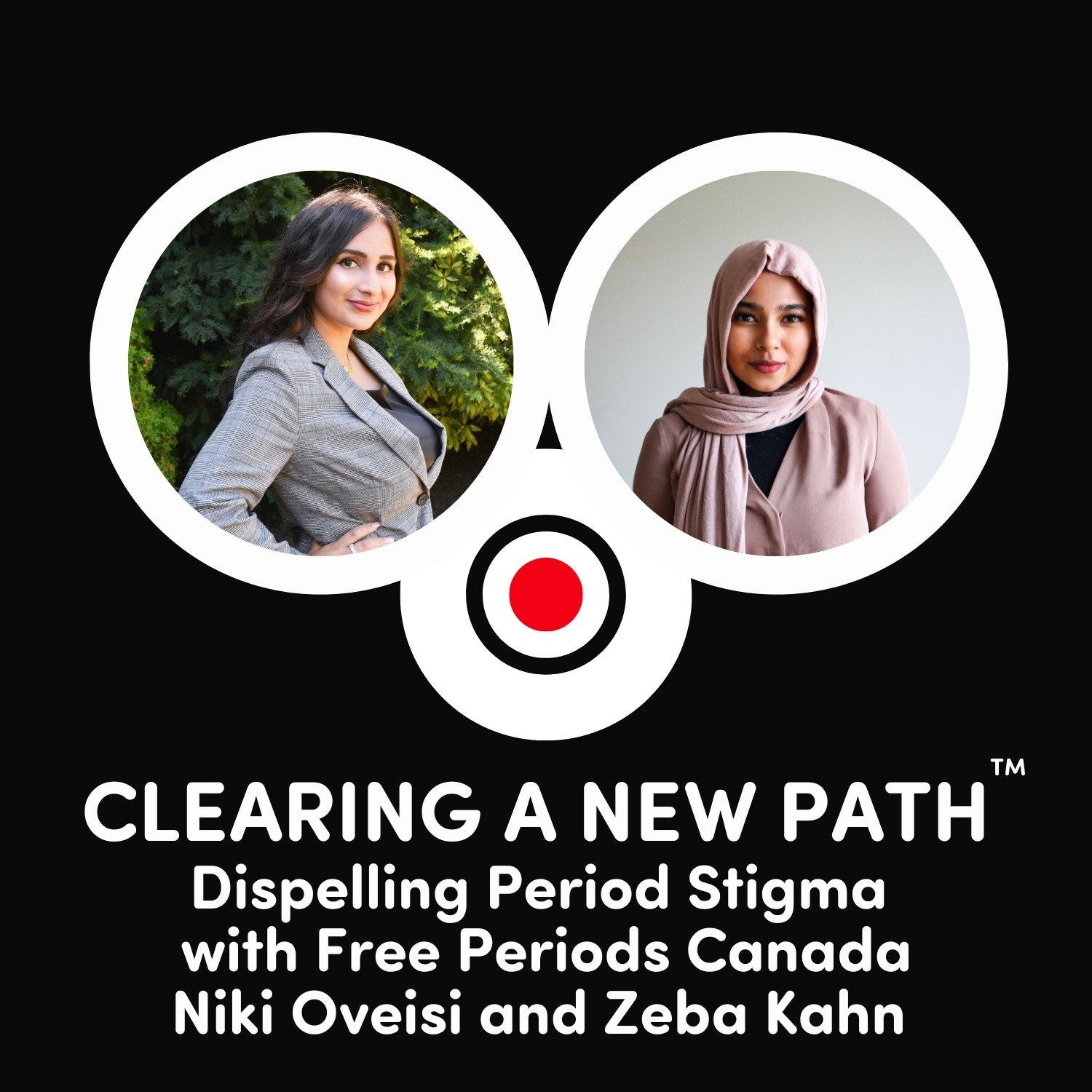Jun 09 2023 22 mins
Dispelling Period Stigma with Free Periods Canada - Zeba Kahn and Niki Oveisi
As our rural Canadian communities grapple with conflicting views about gender identity and the right to live freely as authentic people and simply exist, if we take a step back, often conversations around periods and menstruation along gender lines (and generations) can be strained and awkward at best.
Why is this? Why does the very mention of the word period make people uncomfortable? Including those of us who menstruate? Why has the onus fallen on typically woman-identifying members of families to educate, and often gate keep, those conversations?
And if we can’t even have the conversation, how can we ensure rural menstruators get the products they need?
When I was in Whitehorse, Yukon recently, attending the Equal Futures Conference, I met two incredible women doing work around menstrual and healthcare equity.
Zeba Khan founded Free Periods Canada in 2016, a grassroots non-profit based in Western Canada. But the organization started out as a university club. Zeba grew up in Bangladesh and relocated to Canada in 2015 as an international student. She is a staunch believer in equal access to healthcare for all and she advocates for free access to menstruation care supplies.
Her dedication to advocating for menstrual and healthcare equity has earned her the 2021 BC Community Achievement Award, 2019 Diana Award, as well as the International Community Achievement Award by University of British Columbia four times in a row.
Niki Oveisi is the Associate Director of Free Periods Canada Foundation, and has worked tirelessly to promote menstrual equity and address period poverty in the country. Niki’s participation in the menstrual equity movement gave her the power to celebrate menstruation, and disrupt barriers surrounding cultural stigma and menstruation in her community.
She is also a Pharmaceutical Sciences PhD candidate at the University of British Columbia using both qualitative and quantitative data to explore the impact of cancer treatments on the psychosocial, sexual, and reproductive outcomes of adolescent and young adult cancer patients.
I spoke to these two women about their work.
Get full access to Clearing a New Path at clearinganewpath.substack.com/subscribe
